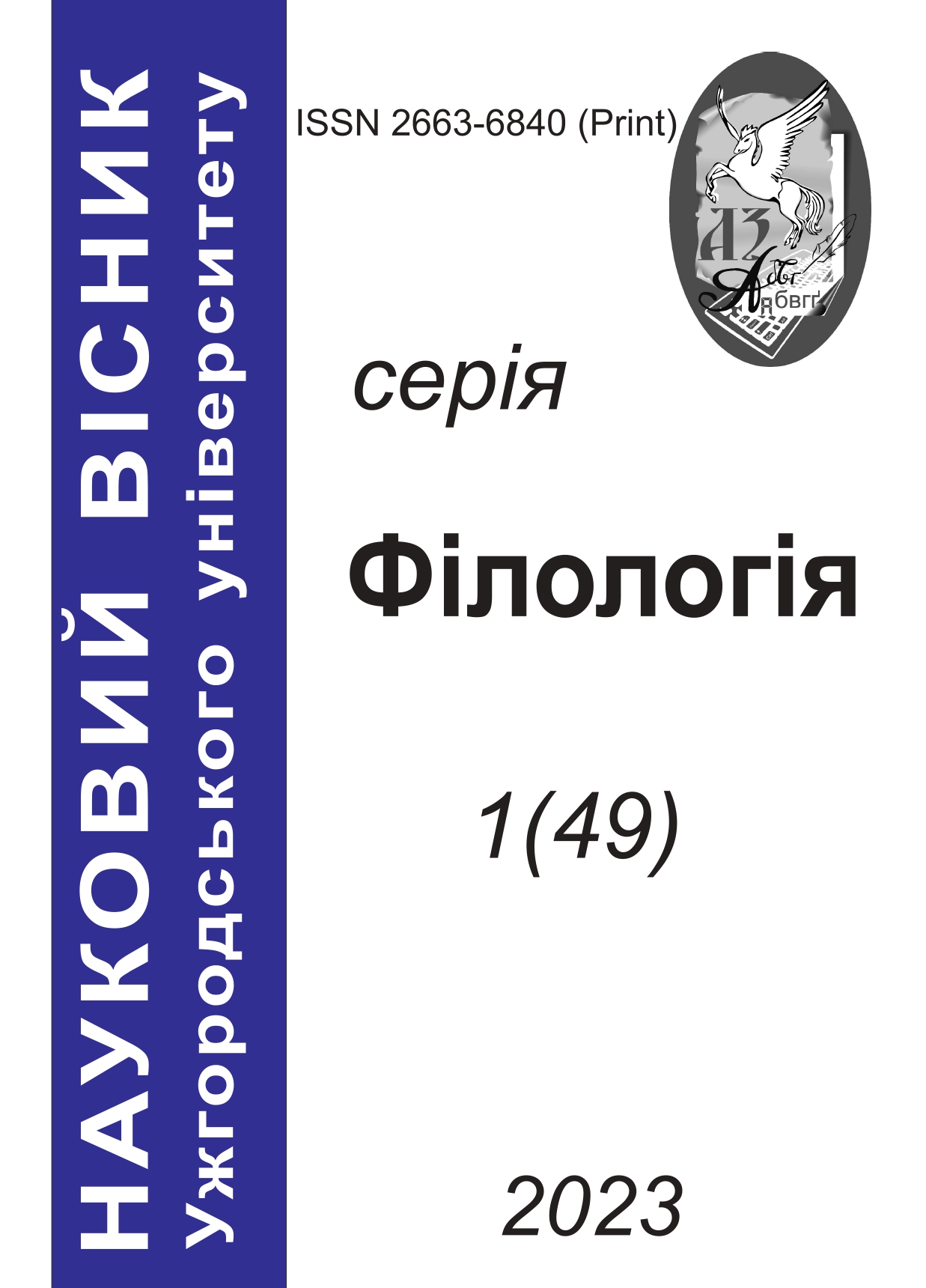PECULIARITIES OF ENGLISH AND UKRAINIAN ZOOPHRASES: СOMPARATIVE ASPECT
DOI:
https://doi.org/10.24144/2663-6840.2023.1.(49).165-175Ключові слова:
set phrase, specification, zoophrasemic potency, zoocomponent, comparative aspect, domain of living creaturesАнотація
The article deals with the peculiarities English and Ukrainian zoophrasemic specification. It is well known, that any fixed phrase has its own special meaning, which is often impossible to deduce from the meanings of separate words. The comparative – confrontation studies of zoophrases and their world models makes it also possible to solve a number of complicated problems in the field of translation.
The topicality of the study of theoretical is specified by insufficient study of theoretical and methodological problems of semantics in comparative – confrontation phraseology as well as the lock of information, coming to light from the results of a more profound analysis of English-Ukrainian correspondences and divergencies.
The empirical material under study. For obtaining as precise research data as possible 100 most frequently used phrases enclosing the same number of living creature names with their zoophrasemic specificity have been extracted from different sources in English and Ukrainian.
The aim of writing the article is from the view-point of modern achievements in learning comparative phraseology and the arosen new paradigms of cognitive science to characterize that aspect of different set phrases that are based on both coincidences and divergences in the perception of the world around by English and Ukrainian native speakers.
The following methods of linguistic research have been applied: phraseological identification, the description and analysis dictionary definitions with selective references to lexicographic and literary sources, classifying them according to different categories.
The results of the study is an attempt to demonstrate phrasemic potency in the domain of naming living creatures in English and Ukrainian.
Closely and distantly related other languages and their variants may be the subject – matter of further zoophrasemic studies.

